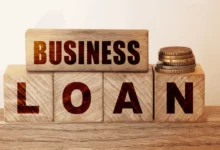
Challenges Every Real Estate Investor Faces
Real estate investors come in many shapes, depending on their priorities, investment strategies, and invested amount. It goes without saying that investing in real estate is not for everyone, as capital is one of the main obstacles you will face to start your investment portfolio.
Yet, it’s worth noting that there are ways available to raise capital and start your property investment venture. It is also worth mentioning that capital is the main obstacle for all investment strategies, even outside of the real estate market. In fact, investors tend to struggle with a different kind of issue with this type of investment. Here’s why:
Finding properties
As silly as it might sound, finding properties suitable for investment is no easy task. Indeed, investors also share the market with dedicated businesses that invest in the build of entire communities and commercial areas, which tend to have preferential status when it comes to convincing sellers. Additionally, if you are looking for residential properties, you compete against homebuyers who are also browsing the real estate market to find their dream home. So, it can be easier to create a real estate investor marketing campaign that targets potential sellers. So they can get in touch with you before everybody else knows about their property for sale.
Protecting the properties
Investors need to protect their properties if they want to reap the fruit of their investment. Whether you want to become a landlord with multiple properties or you prefer house flipping (buying a property with renovation requirements and selling at a profit), you need to ensure your asset remains safe for the whole tie you own it. Unfortunately, depending on the location of your property, it could be vulnerable to flooding risks, for example. Adding protection equipment against natural disasters and insurance cover may not always be a valid option if you don’t intend to keep the property for long.
Besides, properties that are left empty, such as houses going through extensive renovation, could be targeted by vandals and squatters, who could damage the premises.
Changing safety standards and regulations
Building safety and environmental standards are constantly reviewed by the government. The latest safety act to be introduced to Congress aims to support the installation of automatic fire safety sprinkler systems in public housing. While the act has not yet become law, it could affect public housing in the future. Additionally, if public housing undergoes safety regulation changes, other property owners can expect residential and commercial real estate buildings to undergo similar transformations. The bottom line: New regulations could force investors to question the profitability of existing property in terms of compliance and the necessary cost to comply with regulations.
Attracting tenants for passive investors
As a landlord, your priority is to appeal to tenants. Yet, location, facilities, and layout are no longer the main choice criteria. As rent prices are increasing dramatically, tenants are looking at the best financial option. Cheap properties are not profitable for landlords. Yet, without affordable rents, tenants are pushed toward homeownership. It becomes an impossible dilemma.
Facing the challenges of real estate investment requires constantly balancing risk vs. profitability. While real estate investments are described as one of the safest investment strategies, investors face difficult decisions and situations that can lead to a loss.






